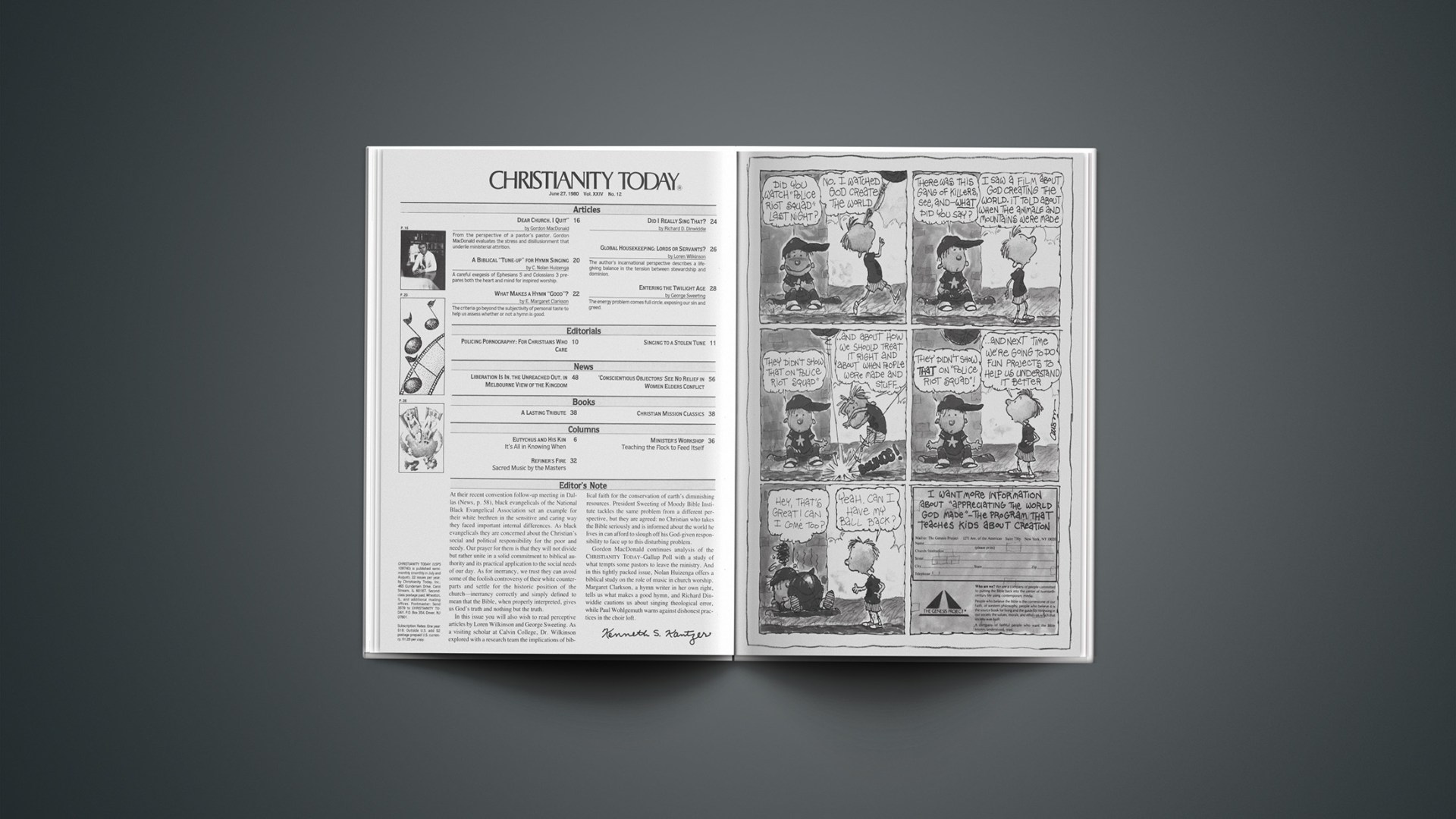At their recent convention follow-up meeting in Dallas (News, p. 58), black evangelicals of the National Black Evangelical Association set an example for their white brethren in the sensitive and caring way they faced important internal differences. As black evangelicals they are concerned about the Christian’s social and political responsibility for the poor and needy. Our prayer for them is that they will not divide but rather unite in a solid commitment to biblical authority and its practical application to the social needs of our day. As for inerrancy, we trust they can avoid some of the foolish controversy of their white counterparts and settle for the historic position of the church—inerrancy correctly and simply defined to mean that the Bible, when properly interpreted, gives us God’s truth and nothing but the truth.
In this issue you will also wish to read perceptive articles by Loren Wilkinson and George Sweeting. As a visiting scholar at Calvin College, Dr. Wilkinson explored with a research team the implications of biblical faith for the conservation of earth’s diminishing resources. President Sweeting of Moody Bible Institute tackles the same problem from a different perspective, but they are agreed: no Christian who takes the Bible seriously and is informed about the world he lives in can afford to slough off his God-given responsibility to face up to this disturbing problem.
Gordon MacDonald continues analysis of the CHRISTIANITY TODAY-Gallup Poll with a study of what tempts some pastors to leave the ministry. And in this tightly packed issue, Nolan Huizenga offers a biblical study on the role of music in church worship. Margaret Clarkson, a hymn writer in her own right, tells us what makes a good hymn, and Richard Dinwiddie cautions us about singing theological error, while Paul Wohlgemuth warns against dishonest practices in the choir loft.










